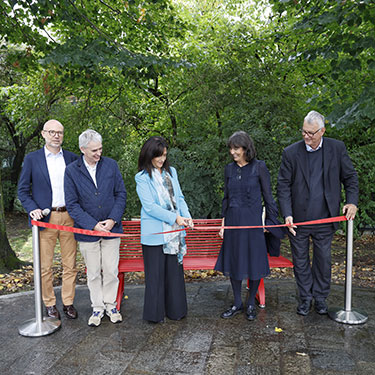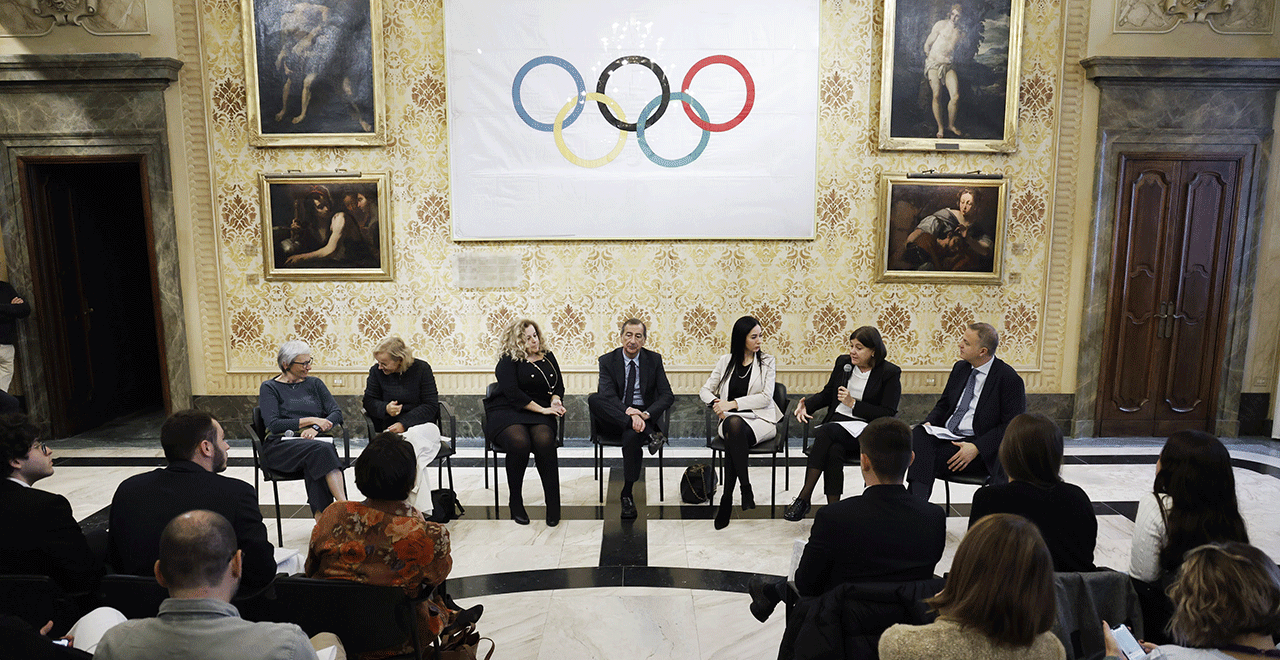“Diversity is a value and creates value. A large number of studies document that the presence of gender diversity in organizations is a source of value. And where there are more women in top positions there is a greater focus on environmental and social sustainability and technological innovation.”
With these words, the Rector of Università Cattolica del Sacro Cuore Elena Beccalli opened her contribution to the meeting sponsored by the office of the Italian Authority for Children and Adolescents of the City of Milan that took place at Palazzo Marino on Friday, October 25.
“What future for girls and boys in Milan?” is the theme chosen for a discussion between a few classes from two high schools and four of the five female rectors of the city’s universities: in addition to Beccalli, Giovanna Iannantuoni (Bicocca), Donatella Sciuto (Politecnico), Marina Brambilla (Statale), while the fifth rector Valentina Garavaglia (Iulm) will take office in November 2024.
The audience in the Sala dell’Orologio was only logistically divided between the students on one side and the rectors and representatives of the Municipality on the other (in addition to Mayor Giuseppe Sala, also the Children’s Ombudsman Silvio Premoli and Elena Lattuada, the Municipality’s delegate for equal opportunities). Young people have put on the table important and sensitive issues that affect them closely, such as equal opportunities in the world of work (in terms of career advancement and balancing family and work); in diversity of gender, religion, sex; safety in the city; the problem of housing.
And starting with Mayor Giuseppe Sala, the responses came forth forthright and to the point. “Five female rectors in the city are a historical fact. When a rector or chancellor is elected, I always tell them that they are part of the social life of Milan and ask them to participate in its important moments because those who lead set an example and must put their faces to it.” To use the mayor’s words again, beyond gender, a rector comes to this role because he or she has developed skills and won the trust of the community.
The female rectors have shown that they embody the model they seek to pass on to female students and future professionals: continue to be generous, because this is a female characteristic, and “begin to be more competitive and ambitious,” as Iannantuoni pointed out.
“Scientific studies show that women at the top impact behaviour in organizations and imply less fraud, orientation to ethical behaviour,” Beccalli further specified. “We can be carriers of an inclusive university system, with attention to gender differences and inclusion.” She continued: “I am a researcher in finance, one of the fields where women are few, particularly rare in the positions of president and CEO. Half of all banking, finance and insurance students are female, yet there are still very few women in top corporate roles. This opens up a more general problem. Consider that there are still one-third of women in our country who do not have bank accounts, and this calls for thinking about ad hoc programs to promote equal opportunities.” In particular, Professor Beccalli continued, “in the School of Banking, we want to offer female students the same opportunities, the chance to network, to receive scholarships to pursue leadership paths in finance, to overcome those stereotypes that female students themselves carry. Women in finance at our University is a program that goes in this direction.”
To foster this inclusive process, it is important that universities, institutions, and labour market work in synergy, abolishing stereotypes but also, for example, encouraging female participation in the calls that fund projects, as Mayor Sala pointed out. Including the gaze and perspective of women in all areas, and not only in those subjects and professions that have always been identified as the preserve of women (such as those of care), means avoiding “male biases that bring with them, for example, artificial intelligence systems developed in 90 percent of cases by men,” as Rector Sciuto put it.
The road is beginning to be paved; now we must walk it together. “Today still one in two women is not working,” Iannantuoni said. “Why? Why was she not put in the conditions to work? Why was she not helped by family, society, politics?” Moreover, the burden of guilt is something women must learn to abandon. Even today, the issue of work-family balance is only addressed to women ‒ indicative of a society that still has many steps to go before it reaches true equality that is rooted in a culture of equal opportunities.
Universities can do a lot as cultural institutions. “We are not only a large company but we have an educational role and therefore a duty to teach equality, rights in terms of economic capacity through which women’s ability to be independent passes,” specified Marina Brambilla. Today it is still news that we are women rectors, the day will come when this will be normal.” That is, if we can reverse the course of denatality. “The demographic winter is a problem that will also affect universities because we will have less and less working population. You, young people,” concluded Iannantuoni addressing the girls and boys in the room, “need to start dealing with these issues. Put your talents to use for yourself but also for others.”





